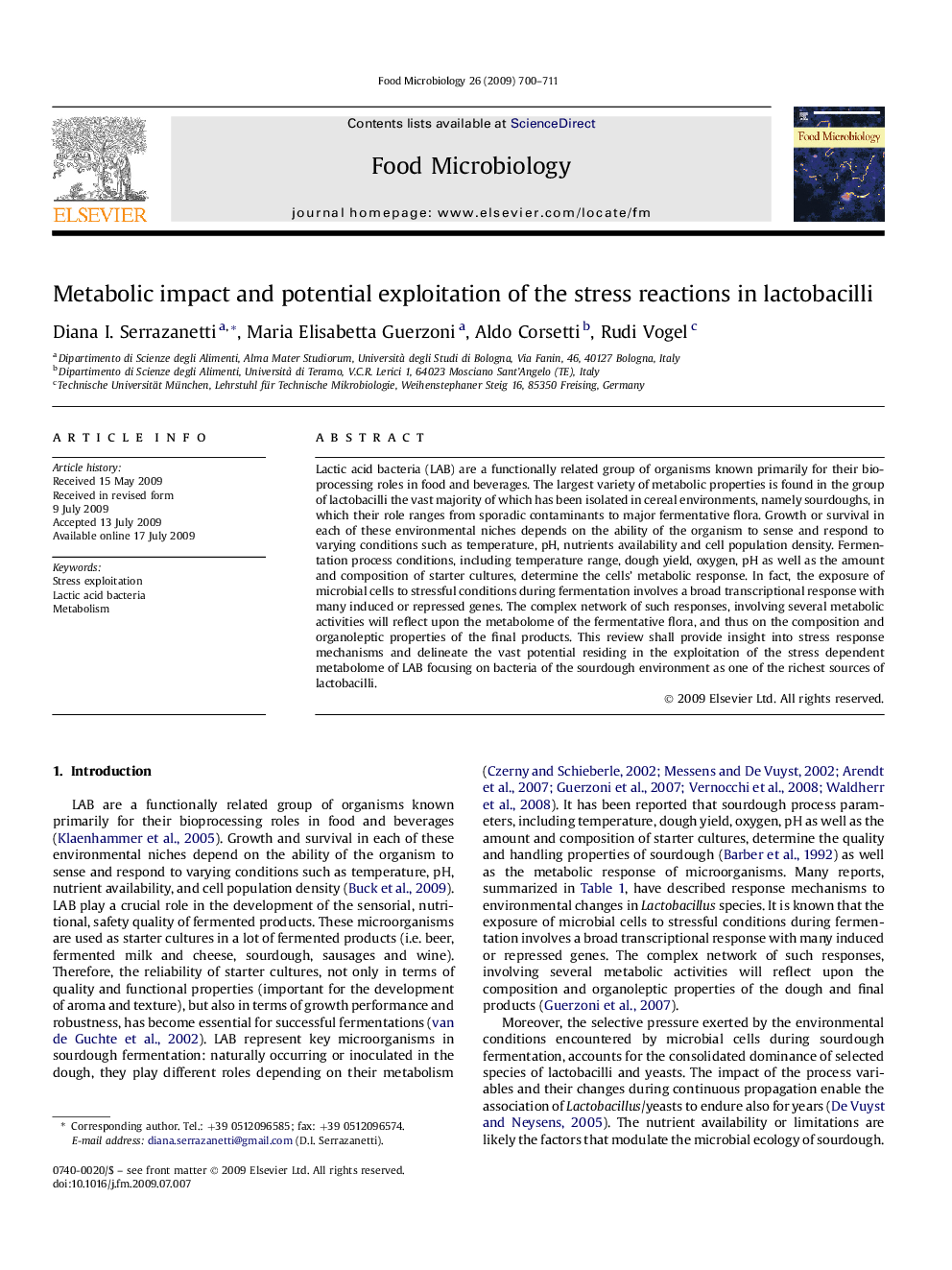| Article ID | Journal | Published Year | Pages | File Type |
|---|---|---|---|---|
| 4363595 | Food Microbiology | 2009 | 12 Pages |
Lactic acid bacteria (LAB) are a functionally related group of organisms known primarily for their bioprocessing roles in food and beverages. The largest variety of metabolic properties is found in the group of lactobacilli the vast majority of which has been isolated in cereal environments, namely sourdoughs, in which their role ranges from sporadic contaminants to major fermentative flora. Growth or survival in each of these environmental niches depends on the ability of the organism to sense and respond to varying conditions such as temperature, pH, nutrients availability and cell population density. Fermentation process conditions, including temperature range, dough yield, oxygen, pH as well as the amount and composition of starter cultures, determine the cells' metabolic response. In fact, the exposure of microbial cells to stressful conditions during fermentation involves a broad transcriptional response with many induced or repressed genes. The complex network of such responses, involving several metabolic activities will reflect upon the metabolome of the fermentative flora, and thus on the composition and organoleptic properties of the final products. This review shall provide insight into stress response mechanisms and delineate the vast potential residing in the exploitation of the stress dependent metabolome of LAB focusing on bacteria of the sourdough environment as one of the richest sources of lactobacilli.
